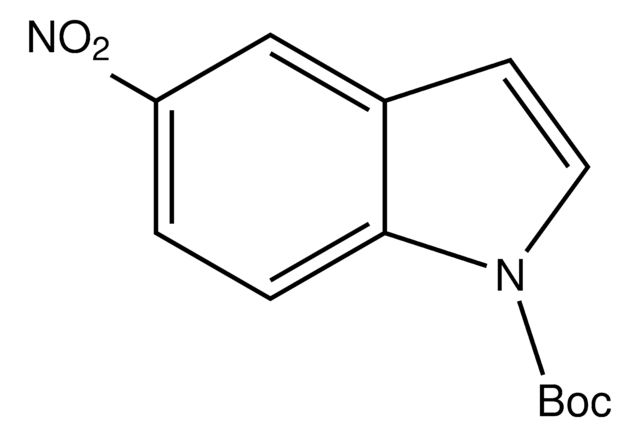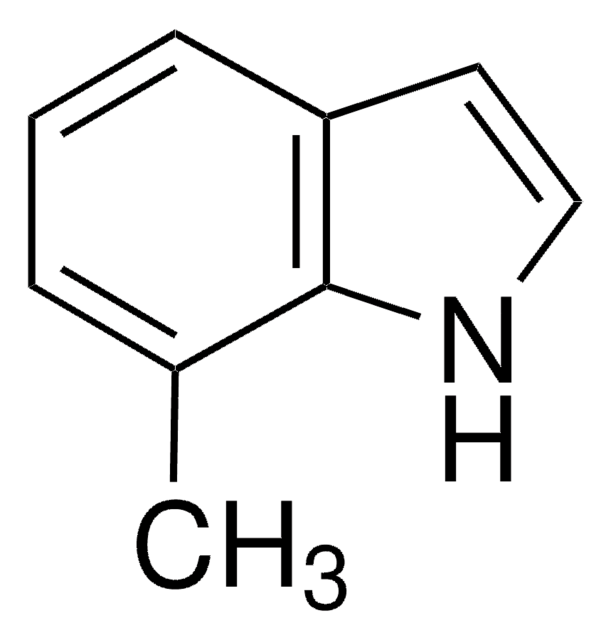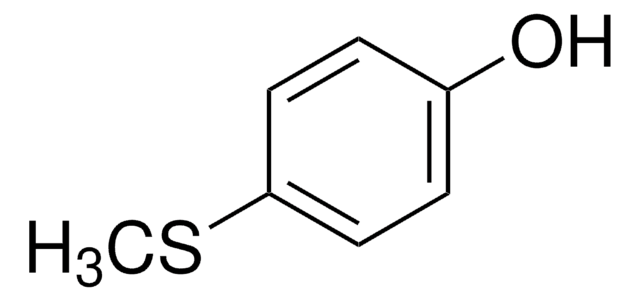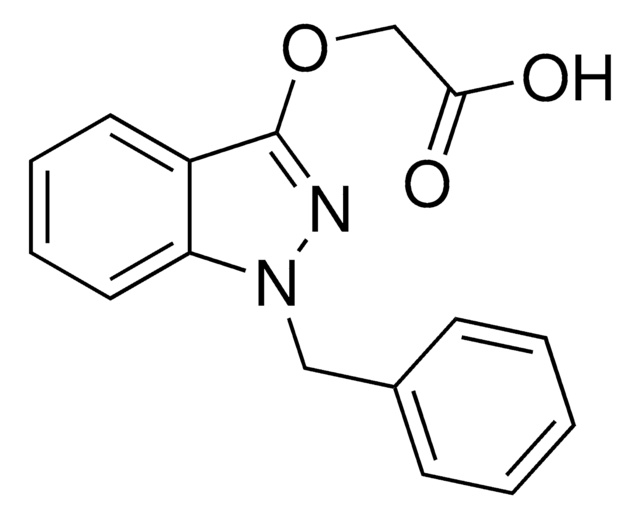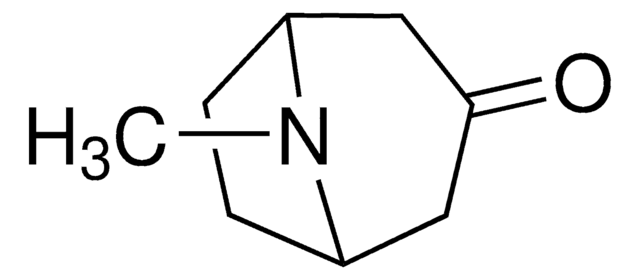680613
N-Boc-5-methoxyindole
97%
Synonym(s):
5-Methoxyindole-1-carboxylic acid tert-butyl ester, N-(tert-Butoxycarbonyl)-5-methoxyindole
About This Item
Recommended Products
Assay
97%
form
solid
mp
75-79 °C
SMILES string
COc1ccc2n(ccc2c1)C(=O)OC(C)(C)C
InChI
1S/C14H17NO3/c1-14(2,3)18-13(16)15-8-7-10-9-11(17-4)5-6-12(10)15/h5-9H,1-4H3
InChI key
LPSLGTZFBDZNEK-UHFFFAOYSA-N
Application
- Asymmetric intramolecular Friedel-Crafts alkylation reaction
- Palladium-catalyzed carboaminoxylations with arylboronic acids and TEMPO catalyst
- Fluorescent pyrimidopyrimidoindole nucleosides via Suzuki-Miyaura coupling reaction
- Novel conformationally restricted β- and γ-amino acids
- 2-(Indolyl) borates, silanes, and silanols
- DNA minor groove alkylating agents as stable amine-based prodrugs designed for tumor-specific release
Signal Word
Danger
Hazard Statements
Precautionary Statements
Hazard Classifications
Acute Tox. 3 Oral - Eye Irrit. 2
Storage Class Code
6.1C - Combustible acute toxic Cat.3 / toxic compounds or compounds which causing chronic effects
WGK
WGK 3
Flash Point(F)
Not applicable
Flash Point(C)
Not applicable
Personal Protective Equipment
Certificates of Analysis (COA)
Search for Certificates of Analysis (COA) by entering the products Lot/Batch Number. Lot and Batch Numbers can be found on a product’s label following the words ‘Lot’ or ‘Batch’.
Already Own This Product?
Find documentation for the products that you have recently purchased in the Document Library.
Our team of scientists has experience in all areas of research including Life Science, Material Science, Chemical Synthesis, Chromatography, Analytical and many others.
Contact Technical Service

